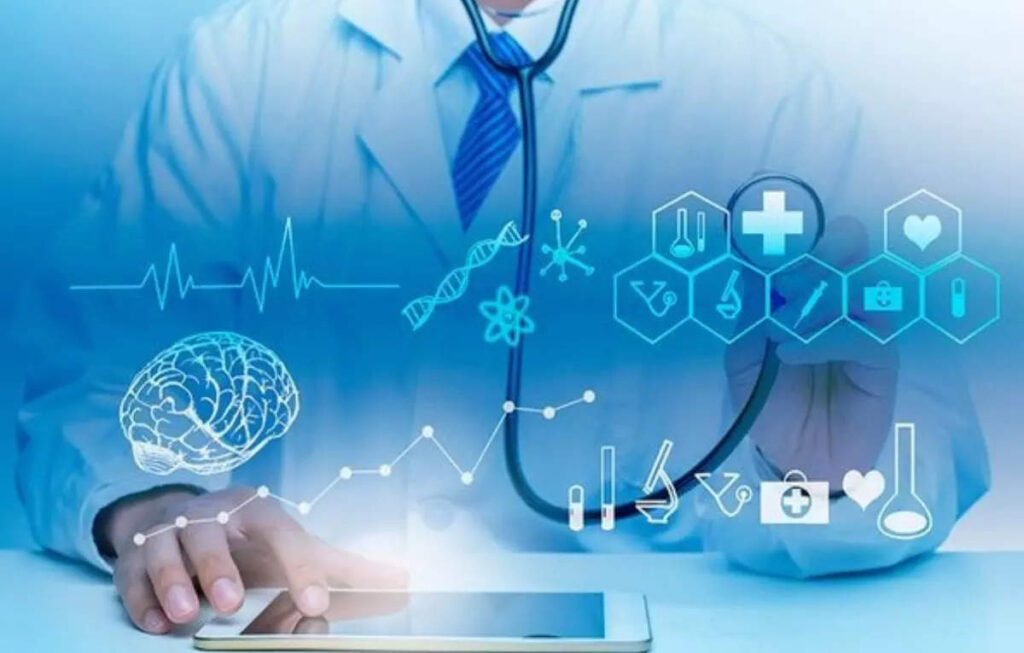In a world where medical uncertainty lurks around every corner, people find solace in shielding themselves from the shadow of misdiagnosis. The rates of diagnostic errors and abuse are more alarming than expected. A recent study published in the healthcare journal BMJ Quality & Safety revealed a surprising truth. Approximately 12 million adults in the United States fall victim to misdiagnosis each year. Even more alarmingly, half of these misdiagnoses have the potential to cause serious harm to patients. Diagnosis is a labyrinthine puzzle, with intersecting symptoms and blurring lines of certainty. Imagine being at the crossroads of early stage diagnosis. Figuring out whether you have Alzheimer's disease or another form of dementia can be like threading a needle in a storm. This impact will ripple throughout the treatment pathway, determining not only its future direction but also the effectiveness of potential drugs.
Continued below
At the heart of this complexity, teleconsulting is emerging as a beacon of empowerment. This goes beyond convenience and has proven to be especially important when seeking a second opinion. This article delves into the profound impact of telehealth on patient decision-making, especially in the context of rural India.
The power of a second medical opinion
In the complex and often uncertain field of medicine, the concept of seeking a second opinion is extremely important. It's more than just a choice. It is a path to empowerment and informed decision-making. Going beyond the surface, a second opinion digs into the heart of your health journey, providing deeper insight and a broader perspective on your condition and potential options.
Essentially, seeking a second opinion is an educated strategy and a powerful tool for navigating the maze of medical decisions. It's about understanding the diagnosis more comprehensively, ensuring all appropriate studies and tests are interpreted diligently, and considering alternative diagnoses that may have been overlooked. But it goes beyond diagnosis. A second opinion allows us to review the appropriateness and completeness of the recommended treatment plan. This is a means of evaluating whether the path you have started is the best fit and whether other options exist that may be more in tune with your individual needs.
In the grand story of health, a second medical opinion has the power to transform individuals from passive participants to informed and empowered decision makers. It's about managing your well-being and ensuring that you make choices that reflect the best consideration of your unique circumstances.
Rural healthcare challenges in India
India's healthcare landscape is characterized by large disparities, especially in rural areas. Approximately 86% of medical visits in the country are made by individuals living in rural areas where access to medical services is severely limited. These communities often face the daunting challenge of traveling up to 100 km to access health facilities. High transportation costs and a lack of nearby health facilities compound the hardships faced by people in rural areas. Furthermore, the majority of the rural population is uninsured and a large amount of medical costs (almost 70-80%) are paid out of pocket or with loans, making medical services prohibitively expensive for many. It has become.
Telemedicine as a ray of hope
Telehealth has emerged as a ray of hope for rural India, where access to healthcare services is limited. The convenience of telemedicine eliminates the need for patients to travel long distances to consult a specialist. This is especially important when seeking a second opinion, allowing patients to connect with renowned experts from across the country, if not the world, from the comfort of their own home. Lower costs through reduced travel and the potential to avoid long wait times at medical facilities make telemedicine an attractive option.
Enabling informed decision making
Telephone consultations have enabled rural patients to make more informed decisions about their health. Telemedicine is improving the quality of healthcare outcomes by providing access to expertise, providing convenience, and facilitating comprehensive discussions between patients and professionals. Patients no longer have to rely solely on local health care providers with limited resources. Instead, they have the opportunity to seek opinions from professionals who have a broader understanding of their condition and treatment options.
way forward
As technology continues to evolve, telemedicine will play an even more important role in addressing healthcare disparities in rural India. Integrating telemedicine platforms with AI-driven diagnostics and wearable devices has the potential to improve the precision and depth of telemedicine. This integration, combined with efforts to improve health care infrastructure and access in rural areas, could lead to more equitable health outcomes across the country.
In conclusion, telemedicine is revolutionizing the way patients seek second opinions, especially in underserved rural areas of India. Telemedicine not only transforms access to healthcare, but also improves patient outcomes by overcoming geographic barriers, addressing health workforce shortages, and facilitating informed decision-making. As the healthcare landscape continues to evolve, the role of remote counseling in enabling patient decision-making for second medical opinions is poised to become a powerful tool to close healthcare disparities and promote improved health outcomes for all. is in place.
This article is written by Vikram Thaploo, CEO Telehealth, Apollo Hospitals Enterprises Limited.
(Disclaimer: The views expressed are solely those of the author and ETHealthworld.com does not necessarily agree with them. ETHealthworld.com is not responsible for any damage caused directly or indirectly to any person/organization. (No liability)
Published May 17, 2024 5:01 PM IST
Most Read in the Industry
Join a community of over 2 million industry professionals
Subscribe to our newsletter for the latest insights and analysis.
Download the ETHealthworld app
Get real-time updates Save your favorite articles
Source link



